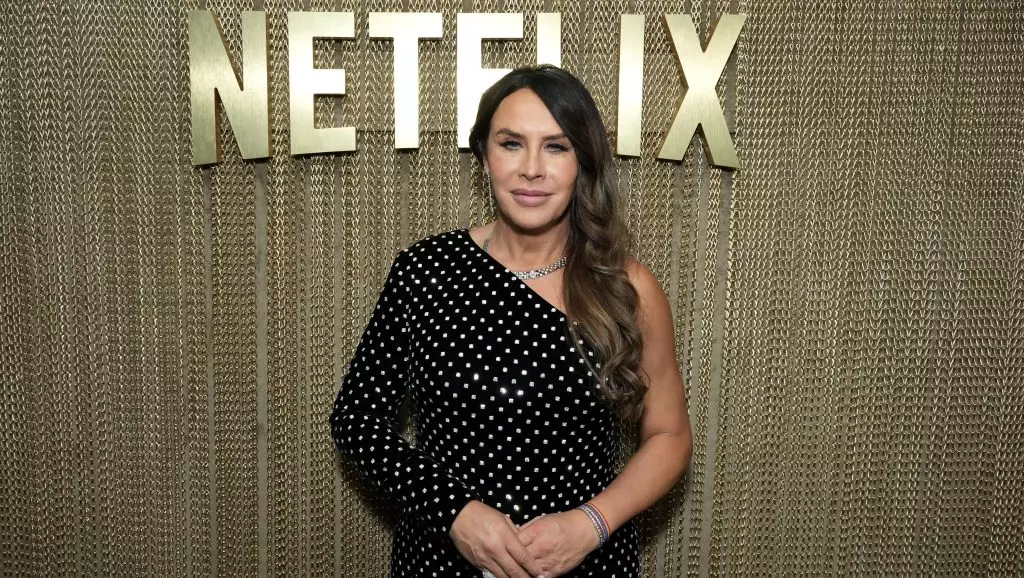Karla Sofía Gascón, a name that recently echoed through the halls of Hollywood, found her trajectory unexpectedly disrupted by social media comments that date back several years. Known for her compelling performance in the film *Emilia Pérez*, Gascón was poised to enter the annals of history as the first openly transgender actress to clutch an Academy Award. However, her aspirations faced an unforeseen hurdle when journalist Sarah Hagi unearthed a collection of inflammatory statements Gascón made on social media, specifically Twitter. In an environment already charged with sensitivity surrounding social issues, the implications of her remarks have been profound, bringing into question the connection between personal views and professional opportunities in the entertainment industry.
The Fallout: From Potential Oscar Glory to Public Outcry
What began as a promising ascent swiftly turned into a critique of Gascón’s character. The tweets in question included remarks about Islam, George Floyd, and even comments on the 2021 Oscars that invoked negative imagery of an “Afro-Korean festival.” Such statements not only incited public outrage but also drew national attention, forcing Netflix to reassess its relationship with the actress. The realization that one’s past on social media could derail burgeoning talent encapsulates a growing concern for many in Hollywood. In our digital age, where every word may be scrutinized and resurrected, Gascón’s plight serves as a cautionary tale about the permanence of online expressions.
From Shame to Defiance: Gascón’s Response
Gascón’s reaction to this intense backlash has oscillated dramatically. During a recent event for her autobiographical book *Lo que queda de mi* (What’s Left of Me), she adopted a defiant tone, expressing her belief that a deliberate campaign was launched against her. “It’s clear that there was a campaign against me,” she declared, seemingly unwilling to accept full accountability for her historical pronouncements. This refusal to conform to the narrative often pushed by critics reveals a complex dynamic between celebrity, accountability, and the societal expectation of remorse.
In her statements, Gascón suggested that criticism aimed at her had become personal and unwarranted, and she challenged her detractors to articulate exactly what it was about her that offended them. This confrontational approach may resonate with some as an act of strength and resilience but could alienate others who believe that accountability is vital for growth and learning. The debate surrounding Gascón illustrates the challenging balance between defending one’s right to express opinions and acknowledging the impact of those opinions on broader societal dialogues.
The Corporate Response: Netflix’s Dance with Controversy
As Gascón’s scandal unfolded, Netflix took a cautious route, initially distancing itself from her. However, they later re-engaged with her, suggesting a willingness to separate the artist from the art. Communications from Netflix executives, including co-CEO Ted Sarandos, indicated a blurring of lines between personal accountability and corporate interests. Sarandos emphasized the importance of extending grace to those who err, yet this raises questions about the sincerity of corporate tolerance in the face of genuine public outrage.
The lack of a firm and clear stance from Netflix on her previously controversial remarks leaves audiences questioning the authenticity of their values as a company. By not unequivocally disavowing Gascón’s earlier tweets, Netflix risks being perceived as prioritizing profit over principles. The contradiction manifested by working with a figure embroiled in controversy and simultaneously claiming to uphold progressive ethics presents a unique dilemma for modern media.
The Broader Implications: Understanding Celebrity and Public Perception
Gascón’s situation shines a spotlight on significant themes within contemporary celebrity culture, particularly the interaction between public perception, accountability, and redemption. The critical interplay between an individual’s past and their public life raises a larger conversation about forgiveness and the role of social media in shaping narratives. In a world where our perceived flaws are just a click away, the evolution of public figures becomes an exploration not only of talent but also of character and social awareness.
What Gascón’s tumultuous journey illustrates is that the road to redemption is intricately complex, potentially rife with pitfalls and unexpected twists. As she navigates the aftermath of her social media history, her story can act as a powerful reminder of the challenges faced by anyone in the public spotlight, especially those from historically marginalized communities striving to make their mark in an unforgiving industry.

